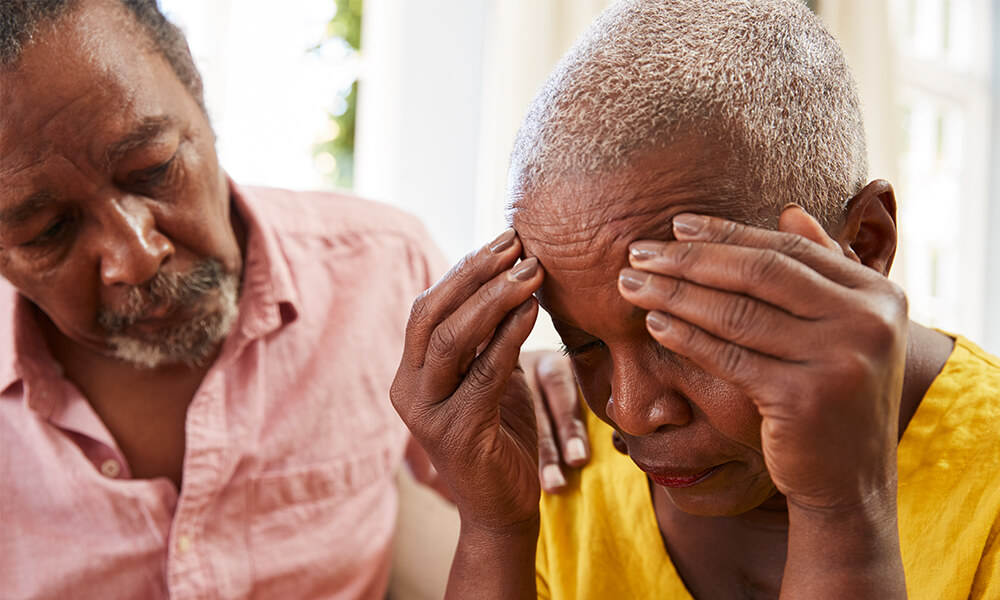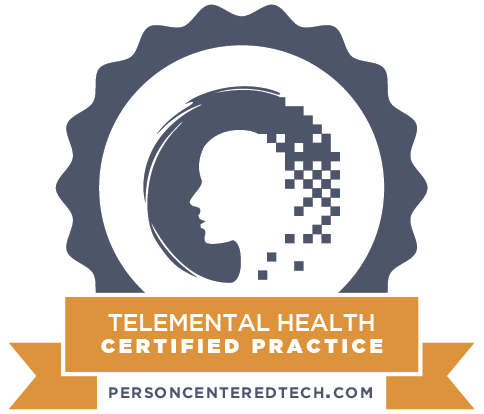“Why Can’t She Just Get Over It!?” Betrayal Trauma and the Hurt That Can Keep On Hurting.
In working with couples where sex addiction has blown up the trust and emotional safety in a relationship, recovery and healing can be an extremely long road. For individuals who discover that the person they love most in the world—and who are likewise supposed to love them back—has betrayed them through sexual acting out, it can feel like their world has been shattered.
The person they thought their husband, or wife, or life partner was…what they thought “was so” about their life and their marriage/relationship…how they knew to trust…what they make this betrayal mean about them and their own worthiness and attractiveness…and what their life will be like in the future…all of this has been dramatically and traumatically altered.
The couples who choose to do the work required to begin the long journey of healing may find their way to PCS and to my office. Most betrayed partners (I’ll say “wife” in this case) experience symptoms of Post-Traumatic Stress Disorder (PTSD) severe enough to meet criteria for this disorder. Those symptoms can last a very long time—meaning many months, even many years—and are influenced by a variety of factors.
One factor that can significantly affect a betrayed partner’s healing process is “discovery.” Discovery means what is says…that the betrayed partner literally discovers that his/her partner has acted out sexually. This can be a one-time event, but more often than not, there are multiple subsequent discoveries over months (even years) that can hurt just as much, if not more, than the first. These subsequent discoveries are like cuts to an open wound, reinjuring the site of the wound, damaging whatever bit of healing that may have begun, and substantially extending the time that healing might occur.
If you are a sex addict and have betrayed your partner, but you are in recovery and doing “your part,” you might feel that that after 6 months, 1 year, or 2 years, etc., “It’s been long enough!” and that your partner should be ready to “Just get over it!” Or, you might say, “Honey, let’s put it behind us and just move on!” If that describes you, please know that there is a part of her that would love nothing more than to be able to do just that! Unfortunately, with sex addiction, the wounding is almost never a one-time discovery, and the pain can continue to get triggered. The last thing she needs is to feel criticized or shamed by her partner for “how long” it’s taking her to heal.
What she needs most from you now is to feel heard, understood, reassured; for there to be concrete evidence that you are faithful and working your recovery; and that you are accessible, responsive, and engaged in the relationship. If you struggle with providing the empathy your partner needs, then reach out to your therapist for help. Seek out a clinician who specializes in Partner Betrayal Trauma to help educate you. Talk with other couples who are further along in their recovery to learn about their journey. Participate in a support group such as Recovering Couples Anonymous (RCA). There is light at the end of tunnel, but whether and how quickly you get there depends on how much of a true and patient partner you can now be to your wife.
Patience is bitter, but its fruit is sweet.
― Aristotle
Article by Gloria Gilbert, PhD
Intimacy. When I talk about this concept with clients, the common assumption is that I’m talking about sex. While sex, ideally, will involve intimacy, many of the people I work with have rarely experienced intimacy and sex together. In fact, many people come to realize they haven’t experienced intimacy anywhere in their lives. For the purposes of this very condensed piece on intimacy, let’s define it as a genuine connection between or among people. A connection that might include vulnerability, honesty, closeness, warmth, understanding, safety, and satisfaction. It’s important to note, these connections don’t just occur in the type of intimacy or love that involves romance, sex, and partnership. Expanding our understanding that we can have meaningful experiences of love in other types of relationships will help us to improve the most important one . . . the relationship with ourselves.
We’re taking a page from Aristotle when we talk about The Four Loves (Greek forms of love). Let’s first talk about Eros, the most highly coveted and sought after of all the loves. Movies, stories, songs all suggest that once we get that one special Eros love, we will be all good. Basically, our job is over. We might have the idea that once we find the right romantic partner, we will finally be happy in our lives because this person will fulfill all of our emotional needs, intellectual curiosities, interests, passions, and desire for fun. Unfortunately, it doesn’t work out this way. People get stuck in a cycle of finding “love” when it is really romance they are seeking. Then after the newness wears off, they are left disappointed, dissatisfied, bored, or on the other end of it, feeling rejected. I suppose this could be because some people are “just a bad match” or that “It just wasn’t meant to be.” On the other hand, it may be because some of us weren’t able to show up with intimacy skills. We weren’t able (or willing) to be vulnerable with emotion, tolerate closeness, receive/provide warmth, or be honest about who we are and express it. Consequently, the relationship couldn’t take the next deeper step where romance fades off a bit so that a deeper, more expansive committed love can emerge. So what do we do when we’re caught in a cycle of so desperately wanting love, but continue to either find ourselves in a string of failed relationships, or so fearful of being rejected that we don’t put ourselves out there. Some therapists will say, “Start with the lowest hanging fruit.” Fortunately, Aristotle gave us three additional fruits or loves to explore and they are all within our reach.
To begin, we have Agape — which is mission based or charitable love. Consider, in life, what makes your heart break or motivates you to give your time or resources to a cause without strings attached. Think about how you desire to help people in a genuine way and when you accomplish this are left with a feeling of serenity. Simply put, Agape love helps you develop a positive sense of self-worth and closeness in the world.
Storge — This love speaks to belonging in the family. Immediately, this concept may lose some of us if we feel disconnected from our family, come from a family wrought with issues, or believe family is the reason we struggle with love in the first place. The good news is that the expression of this form of intimacy isn’t limited to the family we are related to. We can find and develop this love in a group or community where we feel a sense of belonging. These groups are defined by shared interests, common goals or values and can involve a little or a lot of investment. Exploration of Storge can be had in many areas including art/creativity, music, academics, sports, hobbies, gaming, crafts, service projects, and recreation. One of the reasons Greek organizations exist in universities/colleges is to offer a transitional family with common academic or cultural characteristics; sororities and fraternities, especially when they include an Agape foundation, provide a sense of belonging, safety, and community for young adults leaving the nest. Notably, in Storge love, the level of talent or role in the group is not what makes this love deeper or more meaningful, it is the person’s genuine participation in the shared interest. If you happen to be a person who has a supportive and loving family, the nudge is still there to intentionally foster Storge. If you overlook this love because “It’s always been there,” you risk losing intimacy in life by becoming too dependent on one or two people. Also, if you have written off family or certain members, you may be selling short your own ability to love with a humble Agape spirit, achieve some healing, and experience more Storge than you once believed was possible.
Philia — This is the reciprocal love of close friends. Intimate friendship involves a commitment to generously invest in one another’s lives with the intent of helping each other to mature in honesty, humility, and discretion. Deep friendship offers comfort through tough times and an expectation that each will challenge the other if one drifts from professed goals and values. Intimate friends don’t criticize character flaws but instead work together to explore healthy alternatives. They stay informed on important issues in each other’s relationships and investments. Simply put, they challenge and encourage each other to be the best they can be. Certainly, this love is not actualized in quantity, but in quality.
Ideally, if it is a personal goal, the aforementioned loves can prepare you for Eros or romantic/sexual love.
Of course, what makes the cultivation of any of the four loves challenging is if we lack love of self. The good news is that we don’t have to acquire one before the other; we actually need to develop them simultaneously. Also, we can’t forget that without knowing and loving self we will continue to repeat intimacy-blocking patterns in all forms of love. Reason being, if we have not defined who we are, we have little chance of becoming ourselves in the world, regardless of the type of love we desire. While all four of these loves challenge and foster personal growth, healthy investment in self-love, and continual maturing of identity, it is Eros that often challenges us most. It is the loving partnership that most clearly strives for a sense of oneness. As such, it requires a clear sense of self along with the intimacy skills of humility, assertiveness, transparency, clear boundary-setting, empathy and compassion. It is not self-sacrificing but rather requires integrating self with another. This cannot be achieved while hiding, disowning or failing to communicate a clear sense of self. If a person invests in Eros love, they must continue to define “me” or risk losing their identity.
Factors such as lifestyle and life stage can negatively impact the growth of oneness if individual goals and cultivating shared goals within the partnership are taken for granted. Therefore, it is really up to each partner to invest in who they are (personal values, interests, strengths, vulnerabilities, passions, and missions) so they can offer more to the relationship and not become helpless or entitled. In Eros love, each partner promotes intimacy by really valuing how the other cares for their own physical, emotional, mental, spiritual, and sexual well-being.
Lastly, self-love can be hard to come by if a person has a long history of self-destructive behaviors that have blocked intimacy in relationships. The good thing is, we all have equal potential in the present to value ourselves and to feel as good about what we have to offer the world. Theoretically, one’s true worth and ability to attract healthy connection with others depends upon who they are being now, not on their possessions, surface appearance, or past. Now, this does not mean we benefit from attempting to forget, minimize, or justify our past harmful actions. Quite the opposite, a greater sense of knowing and loving self can actually come from owning what we have carried out in real life to hurt real people. Accepting that we are more loveable when we are not perfect is a great goal! In this humble space, we can connect with others as our authentic selves and not as actors. We can believe that no person can truly be satisfied in relationships without intimacy.
So ask yourself: What relationships am I neglecting to strengthen or pursue? What is keeping me from experiencing real intimacy? How might I learn to be more authentic and vulnerable with others?
Article by Sam Hardwig, MA, LPC
As a therapist at Psychological Counseling Services (PCS) in Scottsdale, I see clients from all over the country who share the ineffective practice of numbing emotional pain with sex addiction. They come to PCS for our Intensive Outpatient Program (IOP), and at intake report a common theme – I don’t like what I’m doing, but I can’t stop it, because nothing else works to soothe anxiety, depression, stress, fear, anger – nothing else works to soothe the pain.
As we sit across each other establishing goals for the week, I feel the heaviness of the pain inside them. I can feel the frustration of the theme that runs through their body and mind; the theme of failure, loneliness, and loss. I begin to type in their words, “get sober from sex addiction,” “prevent future relapses,” or “learn healthier ways to cope.” Sometimes I can see a part of them wanting to snatch the words back, like Linus fighting Lucy for his blanket.
Sometimes I see another part, a deeper part, who has done it long enough to know that what was supposed to numb the pain is only making the pain worse. That part has tallied the losses; the marriages, the jobs, and the friends. That part wants to shred the blanket in a million pieces and for good.
Clients will often explain that sex addiction isn’t like alcohol or drugs — it’s not like you can just avoid the liquor aisle at the grocery store, or the bar, or the friends you used to do drugs with. Sex and sexual triggers are everywhere. Clients talk about the difficulties of going to malls where they face women in underwear with wings on their backs, and half-naked teens in sepia-toned ads on the storefronts where their kids want to buy blue jeans. Another overwhelming narrative from clients in terms of escalation or relapse involves the internet.
Since the early 1990’s, internet pornography has redefined the culture by creating a readiness aspect to sexual content that didn’t exist before. As of 2015, the amount of content, including chat rooms, webcam sites providing live encounters, and downloadable apps (the list is endless) with access to casual sex, has exploded, making it difficult for addicts to establish, much less maintain sobriety.
Seeking Real Intimacy
People have trouble hearing the word “sex addiction” without grimacing at the term. The public perception is that the individual is more of an ass**** than an addict.
Internally, I see something different. I see individuals who long to connect, yet fear vulnerability and the risk it takes for healthy intimacy. Typically, they have a history of abuse, abandonment, and/or neglect — and have difficulty trusting that a significant other won’t replicate what has occurred in their past. Sex can “feel” like intimacy, which makes it easy for the addict to believe he or she is connecting to another human being.
Real intimacy, however, involves the richness of building history with a partner, working through struggles and hardship together, and experiencing joy. “Faux” intimacy catches up when the connection only reinforces the loneliness and emptiness the individual had at the start. It’s a “cheap solution,” and the addict on some level knows this.
The pattern that typically plays out in the sex addiction cycle, involves numbing the pain through the sexual act, feeling shame and self-loathing for “acting out,” followed by a period of attempting to resist the behavior. The point of no return is different for every client. It can be the moment when yet another affair is discovered by the addict’s significant other, it can be the moment a boss discovers pornography on an addict’s work computer, or it can be the addict saying no more.
While the preference would be the addict initiating treatment rather than an external forcing it, there is at least an opportunity for the addict to do life differently when he or she enters therapy.
For *Wayne, *Tom, *Jason and *Karen, their reasons for signing up for an IOP at PCS varied.
Wayne had been sober from alcohol for 25 years, and then started having affairs a year into his second marriage. He “got caught” a year ago, and since then has kept relapsing. He would say that his wife was the reason he sought treatment; however, he admitted he had never felt peace in his entire life, and needed to know what that felt like before he died.
Karen was similar to Wayne in that she had been sober from alcohol for over 20 years, but lost her sobriety from sexual addiction four weeks prior to coming to PCS. She and her husband almost divorced three years ago, and he told her if she relapsed that would be it. After her relapse, he struggled to pull the trigger on the marriage. He listened as she described her desire to go deeper in her therapy, in order to get to the root of her behaviors, and decided to give the marriage a chance.
Jason entered therapy after his girlfriend broke up with him. He had spent most of his teenage years isolating and using pornography and masturbation to cope with the pressures of growing up. Now in his early-20’s he reported his life was going nowhere and he didn’t know how to stop. All three had resistances to therapy, but deep-down wanted to change.
Tom was a different story. He entered therapy to try and end his fourth affair, saying, “I’m in love with this girl, but I don’t know. Maybe I need to let her go and try and love my wife. I don’t really want to, but my wife wants me to try, so here I am.”
Wayne (age 55): Married, father of 2 adult children
When I met with Wayne for our second session, he shuffled around the couch and told me he was pissed at my colleague he named, “Alligator Shoes.” I tried to track his grievances, but by then he had moved on to wanting to punch yet another of my co-workers. It appeared he had been called on the carpet for flirting with a female visiting professional by buying her a box of cookies. In his view, he was merely saying, “thank you,” for an affirmation she offered him after one of his sessions. His therapeutic team, however, noticed a trend in the behavior, which linked to his tendency to groom women “innocently” before embarking onto a less innocent sexual encounter. In fact, his list of encounters were several pages long, and some involved unprotected sex, which was a health hazard to himself and his wife who had spent years trying to love him. He told me he was ready to run right now. I told him he could run anytime. I honestly didn’t want him to run, but I had to give him the opportunity. I had to allow him to make the choice of recovery for himself. He then spat out, “Well then you’re going to have to change my schedule. I can’t meet with any female therapists alone, because I guess I can’t be trusted.” I let him know that I thought he might benefit more from learning how to cope with the anxiety of being around female therapists and learning how to resist seeking affirmation from them. I then remembered his referring therapist sharing that Wayne was a “runner” and an “avoider,” and he wouldn’t be surprised if he left. Wayne took some deep breaths and this time he stayed.
Karen (age 37): Married mother of 3 children (ages 9–15)
Karen was introduced to sex by an older male cousin at the age of 10. He brought her to his friends and per her report, they “messed around” with her. She had difficulty seeing that as abuse, because in her view, she enjoyed the feeling of being touched. She described a household where her father held a gun to her mother’s head in front of her and her siblings. She also recalled several instances of her father beating her mother, and seeing her mother taken to the hospital. For Karen, sex became the one thing in her young life that felt good. She used masturbation to calm herself down, to relieve fear and tension, and to escape the turmoil in her household. Masturbation also allowed Karen to take control in an environment where she had none.
As she grew into her teenage years, sex was a way to feel attractive and popular. She continued using sex for attention and comfort well into her 20’s and 30’s. Compounded with alcohol, she crossed the line at work, and lost several jobs as a result. While part of her longed to have the simplicity of deep intimacy with her spouse and stability for her children, Karen had difficulty coping with her even deeper feeling of worthlessness.
In Psychodrama Group therapy, Karen volunteered to play the protagonist and worked on the scene where her father held a gun to her mother’s head. She realized for the first time, how painful her childhood really was, and admitted she felt suicidal most of her life. She expressed fear that if she allowed herself to begin feeling this pain, that it would somehow swallow her whole, and she wouldn’t survive it. After all, she had spent years “keeping it together” by telling herself it wasn’t that bad, and then soothing the pain with sex. At that moment, she wanted to go back and stop feeling, but at the same time, she knew there was so much more.
Jason (age 23): single with a girlfriend
Jason’s family system was infiltrated with a long list of high-achieving, outwardly successful grandparents, parents, and siblings. As the youngest of 7 children, he felt his “competition” was near-impossible to beat. Doctors, lawyers, business owners — all the outward signs of success. His parents were well into their 40’s when he was born, and the bigger part of him felt as if he was an after-thought in life. By his own admission, he believed he was spoiled and entitled, and since there was not much demanded of him, Jason felt there was likely not much expected of him either. When he was 12, he recalled hanging out with a friend who discovered his father’s stash of Playboy magazines and hid them in the back of his house. That was Jason’s introduction to what would become a pattern of using pornography and masturbation to ease his fears and escape from the pressures of reaching a bar of expectation he felt he had no chance of achieving. As he worked on his family Genogram, he realized that while his family was outwardly successful, they lacked emotional availability and connection. For the first time he began to challenge the definition of success.
Tom (age 46): Married father of 4 kids (ages 6-18).
Tom finished up a text as we began session, and then handed his phone to me and said, “Isn’t she beautiful?” His wife had accompanied him from the West Coast, and while not doing the program herself, decided to be with her husband during his IOP. She was sitting in the lobby reading a book, as her husband shared a photo of his affair partner. I attempted to begin a Trauma Egg with Tom, which comes from the work of Marilyn Murray (PCS Consultant) and helps the client organize significant disturbing events in their lives, uncovering how they felt, how they coped, what message they internalized, and what they needed or wanted instead. It’s an effective tool designed to uncover the underlying causes of addictive behaviors. Tom stated he had no memory of his childhood, but was able to recall current turmoil with his father, as they ran a business together.
His face reddened as he described the ways in which his father belittles him and undermines him in business. He angrily relayed how his father will take money from the business, and then deny ever doing it. When I asked him how he dealt with it, he explained that he has tried to talk to his father, but nothing changes. When we looked at ways he could communicate and set boundaries with his father, Tom laughed, “There’s nothing I can do. I just have to deal with it.” Tom felt powerless in his relationship with his father, yet powerful in his ability to have affairs. In that realm, no one told him how it was going to be. When Tom was asked to consider how his wife pays the price for that dynamic, he acknowledged the possibility, but in all honesty didn’t want to change it. He was hoping we could figure out a way to teach his wife to stop complaining.
Progress Notes:
Wayne: Wayne stayed for two weeks individually, and then decided to do a couples’ intensive with his wife for an additional week. The man who was ready to run on day 3 of his first week was breathing differently on the last day of his third week. They both wanted to process the pain of his last affair, an affair that endured longer than other encounters, and continued to burn inside his wife. As she processed with EMDR, he witnessed her grief. He was able to be present as she expressed her sadness and built empathy for her during the process. They both felt like they got to a place of deep intimacy, and Wayne felt the peace he had longed for.
Karen: Karen learned how to conquer the heaviness of her shame and feelings of worthlessness, by continuing to share her story with her group. This process allowed her to demystify what she previously deemed shameful and humiliating. Instead of judging her, the group acknowledged her pain, and allowed her to feel for the first time that she was human, just like them. Instead of hiding in shame, Karen began to own her shortcomings from a healthy adult perspective. She had a long road ahead in repairing her relationship, but felt hopeful at the prospect.
Jason: Jason learned healthy tools to help him cope with pressure and anxiety, and achieved a level of sobriety for some time. He began extending himself socially, and felt less isolated and withdrawn. His girlfriend had been on the fence since he began treatment, and a few months after his IOP she ended their relationship. He managed it initially, but loneliness prompted a relapse in his pornography use. He stayed in therapy and was able to successfully recover from the relapse. Through the growth and the life experience, he realized adult life is going to involve struggle, loss, and pain. For the first time, he felt ready to challenge himself to stay sober during the next inevitable disappointment.
Tom: Tom decided to go against the encouragement of his therapeutic team and continued to contact the “beautiful woman” whose pictures filled his phone. On his last day, he expressed disappointment that he felt the same; he had difficulty connecting how his decision to maintain the problematic behavior was likely the cause. The shift that did occur involved his wife. Tom went back to the West Coast, while his wife stayed and did her own IOP. She had a difficult time facing the reality of her situation; however, she allowed herself to feel the pain, and in doing so, left PCS with the feeling of empowerment and serenity.
In the end, Wayne, Karen, Jason, and many more clients, began to learn that the best painkiller is to learn how to sit with the pain, face it, and work through it. Soothing it with sex addiction ensures the singular guarantee of more pain.
*Clients names and information have been changed in order to protect their confidentiality.
Article by Cristine Toel, MA, LPC, S-PSB
This is not a story of finding love in all the wrong places, nor is it going to be an intellectual discussion on love and how to define it. For me, love has been a challenging concept, and I am certain its understanding has alluded me. This story lacks the detail to fully describe a life lived, but instead provides a glimpse of a lengthy journey to discover love.
I think as a child I thought love took the form of a new toy, bike, or book I was immersed in. In my family I heard my parents say they loved me, at times they expressed it through hugs, but mostly love took the form of action. My dad acted on his love for us by providing financially and creating opportunities for family vacations. My mom communicated her love through cooking, she made great meals, and keeping the house organized and clean. I knew my dad loved his work, but I am not sure I ever heard my mom express what she loved doing. I learned love is primarily what you do for others and yet this still did not seem to fully embody the idea of love.
Entering my teen years unfolded yet other dimensions of love. Strong feelings for young women developed. I also found myself drawn to print images of women. I learned that my feelings toward other women, once expressed and acted on would fade with time. On the other hand, my attraction to print images persisted and I kept searching for more. The idea of love became confusing. A love for playing sports continued to develop and oddly enough, growing up in Arizona, snow skiing was where I found myself most comfortable. There was always something about being in the middle of a steady snow and the stillness it created.
My sophomore year in college proved to be magical for me. This is when I first met Robin who is now my wife. This first encounter went beyond the physical attraction, touching something deeper in me, I felt completely drawn and in love with her. Soon after there was an encounter, what I call God, that shifted my perspective and created a sense of feeling loved much like I felt with Robin. Later, in my junior year in college, psychology and religion sparked a love for learning about people, relationships, and God. I continued to find being outdoors in nature and allowing my senses to take in all that surrounded me, somehow, resulted in feeling full and loved. Was it possible that I was now beginning to understand love?
Well from here, it was five years of graduate school in Marriage and Family Therapy, at least I was studying love and relationships. Then I found myself working, loving it, but perhaps loving the way it fed my ego. In work, I loved accomplishing, hearing how well I was doing, and clients telling me how much they appreciated my help. When I failed to help clients, it triggered a deep hidden insecurity. Next was the experience of having children. The birth of our children 27 and 25 years ago created a whole new space and depth to my understanding of love. Just listening to them breath while they were sleeping fostered a connection I did not fully understand. For the first 10 years of their lives, work took a back seat as my focus shifted to their needs. Unfortunately, I did not pursue intimacy with Robin in the same way and as the children became more independent, work beckoned me back. As I reflect, it was easier to work and help others than it was to risk acting on my love for my wife and children by becoming more vulnerable with them.
Truth is, I did not fully understand vulnerability. Not until the past three years of my life, I am now 57, have the circumstances of my life taught me love is found through facing my challenges, my shame, my insecurities, and my arrogance. I am facing the reality I am not in control of my destiny. My judging of those closest to me and the resulting distance it created was not as well hidden as I imagined. Sadly, it took more than one life lesson over the past three years to focus my attention. These lessons came to me in my marriage, with my children, my family of origin, professionally, and with my friends. My universe was telling me it was time to change. I am grateful I ultimately paid attention to the resulting hopelessness, confusion, anger and began reaching out to others with greater honesty and vulnerability. This is when I began to let others in, as a sense of helplessness led me to reach out to others for help. Only as I began living more truthfully, with greater self-awareness, and acceptance of my own powerlessness have I found the ability to begin loving myself. In this space I have begun to reach out to my wife, children, and friends and vulnerably love them. Love them for who they are with a willingness to listen, extend the conversation, and support them without my agenda. I am finding this quiets the tension in me, my defenses let down, and I can be more fully involved with those most important to me – I can love. Equally important, I am finding more compassion deep inside of me for those marginalized in our society.
This time of year, we focus on love in the form of cards, dinners, flowers, and other romanticized versions of it. Perhaps love is found in our relationship with self and others as we courageously visit the memories, experiences, and conversations we have long avoided. I believe this is where we discover our tremendous capacity to love.
Article by Dr. Marcus Earle, Clinical Director
An abundance of research demonstrates the association between emotion skills and relationship satisfaction. Emotion skills can be defined as the ability to identify, manage, and express emotions. Emotion skills offer the ability to genuinely express your emotions, identify with your partner’s emotions, and to improve one’s ability to tolerate distress.
Emotions cannot damage relationships; rather, emotional expression can be helpful (via promoting connection) or harmful (via promoting distance). Lack of emotional expression decreases ability to be genuine with self and others. Research shows that interactions with others unable to self-regulate causes stress. Likewise, people unable to use healthy patterns of emotion regulation find close relationships to be uncomfortable, and they avoid such relationships.
If you have ever told your partner, “at least…,” “it could have been worse,” or “look at the bright side” following their expression of pain, you might benefit from increased emotional skillfulness. Though rooted in good intentions, these types of expressions minimize pain and turn others off to continued expression. Those truly comfortable tolerating their partner’s pain might respond with an invitation, such as, “that sounds painful, can you tell me more about that?” Other types of unhealthy expressions of emotions (aggression, avoidance) can trigger opposition from others, increasing interpersonal conflict and decreasing interpersonal support.
If you’d like to start increasing your emotion skills, consider self-disclosure, “I feel” statements, use of feelings words, perspective taking, reflections, identifying one thing you can empathize with, and validate. Invite your partner into emotional conversations and into an improved relationship.
Article by Dr. Catherine Asber-Lowrey, Psy.D.
“The discomfort and fear of remaining emotionally vulnerable and engaged tempts me to find the familiar comfort of isolation and managing on my own.” – Dr. Marcus Earle, PCS Clinical Director
Gratitude means having an appreciation for life in the present moment. It’s counting our blessings, noticing simple pleasures, and acknowledging the abundance already here. When we are truly thankful for what we already have and content with what is – this is enough. We tend to take for granted all the good that is already in our lives. All too often, we hold out for the big achievements before allowing ourselves to be truly happy. It can be all too easy to fall into the trap of always wanting more and never allowing ourselves to be satisfied and content with what is. It’s as if we believe that life owes us something other than the greatest gift of the present. This mindset of lack and never enough can be a painful way to live, and is a surefire way to keep oneself just short of real contentment. This limited mindset is not in service to us and living in this way is a superficial form of happiness.
Most of us have a story about how our lives “should” be unfolding, and when this story clashes with reality, this creates discontentment. This discontentment is the outcome of placing our own mental projections onto how we believe life should be. There is a beauty in being able to recognize that life is simply unfolding and when we resist what is by placing our own demands on life, we create our own unhappiness. This type of denial and resistance of life as it’s happening in the now creates suffering. This may take the form of denying a reality that one feels afraid to face or may even look like an avoidance of feeling certain emotions. When we habitually focus on what’s not going right, we miss out on the good in our lives. On the most simplistic and basic level, the good is where life is, in the here and now.
The more we shift out of a mindset of never enough and a resistance to life and instead begin to adopt an attitude of thanksgiving, the “more” we find that we receive. Gratitude is often a mental acknowledgement of everything that is going well in our lives, and certainly this is important and valid on its own. However, there is a thankfulness that runs much deeper. This type of gratitude is a deep sense of our very presence and our sense of “being-ness” or aliveness. This is simply just the natural feeling ‘I am’, the sense of existence that is always present when we are not entangled with thinking about the past and future. We can access our natural being-ness anytime, because it’s always here, underneath the noise of the mind. When we are able to find the space between thoughts, there is a natural peace and contentment flowing within. As we become more attuned to this sense of aliveness, true gratitude starts to emerge automatically. Through being fully present with life as it’s unfolding now and recognizing our very presence, there is a felt sense of appreciation for all that is.
So in this way, true gratitude is powerful and transformative. We miss the natural wonderful-ness of life when we are arguing with the present or resisting what is. Being present with life and having a deep acceptance, allows us to find peace even in the midst of difficult situations and allows our choices to be guided from an honest and grounded place. In fact, when we have the maturity to accept the present moment with a heart of gratitude, we discover that peace naturally arises.
Each day it’s important to appreciate this gift of being alive. There are many ways to practice gratitude and acceptance. You might start with keeping a daily gratitude journal and write in it throughout the day or as you go through the day. You can become more aware of all the gifts, joyful moments and love in your life. You might notice the good that has come out of painful events in your life and start to see the grace and blessings in even the deeply challenging experiences.
One of my favorite ways to practice gratitude is to get into the habit of saying “thank you”. This is a very simple practice and can even be a form of prayer for some. On a basic level, one can even acknowledge and give thanks to God or life for their senses and being able to appreciate life so fully, for the breath and for the joy of family and friendship. We can offer thanks for the beautiful things, and, even the ugly things. We can feel gratitude for the small acts of kindness given or received, for the warmth of the sun, the sound of rain and the beauty of a flower. We can say thank you to existence and to the creative power of the universe, to the deeper sense of being that is always here. All of this provides a simple but powerful way to add so much beauty, strength and joy to your life. Thank you, thank you, thank you.
Article by Stacy Hall, LPC
As humans, “fixing” is part of our nature. We are logical, strategic, solution oriented beings that are often taught from a young age that a question always has an answer and a problem always has a fix. After all, we invented the wheel when things became to heavy to carry and found fire when we needed a better way to eat. In short, “fixing” is part of our nature because it’s birthed from our instinct to survive.
With that being said, no wonder it’s so uncomfortable for us when we encounter a problem that has no tangible fix.
For many couples seeking out therapeutic support, desire to fix, make better, take away a partner’s pain is often a common goal at the onset of therapy. Perhaps one partner has not been faithful, or has said something hurtful or has acted in some way, which has resulted in the other receiving the message “I am not important, I am not loved, I don’t matter”. With true genuine intentions, this partner often arrives in therapy hopeless and helpless, stating his or her belief that they have done all they could–no matter how hard they try to fix the problem, things just don’t seem to be getting better.
“Fixing”, while generally coming from a well-intended place, (we don’t usually enjoy seeing someone we care about hurting, especially when we know that our actions are the reason or at least part of the reason for the hurt) is invalidating. When we have hurt someone and we attempt to fix it or make it better, we are essentially sending the person we have hurt the message: “Your feelings make me uncomfortable so I’m going to do what I can to try and make them go away. This way, you’ll feel better and I can feel better knowing that you’re no longer hurting because of me.” While this is often happening at a subconscious level, it’s the reason why simply telling our partner “you are important, you are loved, you do matter” in these moments is often not enough.
You may have heard therapists or others use the phrase “lean into the discomfort.”—this is what that’s all about. While there is no tangible fix in these circumstances, what is really needed by the hurt partner is for the other to create space for them to be; to lean in to their pain, let them know that their feelings are valid and be asked what they need. When we can do this, we are able to acknowledge our partner’s pain and let them know that their discomfort makes sense. We come alongside of them and co-burden the hurt. In doing so, hurt and pain becomes more manageable because while it is still ever present, we receive the message from our partner that we are not alone.
By Aliza Cooper, LMFT
Self-esteem is partly determined by the ability to be truthful with a humble spirit in order to identify with the “realness” of who we are while gaining insight into our life story. No one can change what is unknown or denied. The transformation of our life script takes rigorous honesty, mentoring, reflection, self-care and a journey of faith, hope, and courage. A surrender and willingness to self-asses in order to self-govern with respect requires borders and boundaries. The essence of healthy relationships are indicative of healthy boundaries. Once established they reveal self-love and allow one to differentiate and to attach to others. Individuality defines the distinction of thoughts, beliefs, emotions, clarifying the moral compass and values before we speak, act and or decide.
Boundaries spoken and maintained educate the world around us how we would like to be treated. The three functions of boundaries are as follows: to define the essence of who you are, to protect oneself emotionally, sexually, physically, financially, intellectually, and spiritually, and to contain and regulate both internal and external triggers. Establishing and maintaining healthy boundaries allow for freedom to be “real” and a passage into the maturing process. It is a walk of integrity, high regard and courage especially when challenged. Be best and stand in honor with boundaries!
By Brenda Garrett-Layman
Being human means being vulnerable. We are sensate creatures meant to feel and emote. We typically prefer safety and routine and when we are forced to leave all things familiar and secure due to death or loss, we experience fear and grief. In fact, we may on any given day experience loss to one degree or another. These losses might be experienced as “big deaths” or “little deaths.” Based on an individual’s experience with past trauma, spiritual beliefs, social support and values, our losses are experienced on a spectrum. Some examples of loss include:
- Suffering childhood trauma
- Loss of love
- Loss of beauty, fitness or youth
- A difficult birth
- A near death experience
- Losing sexual potency
- Losing one’s virginity forcefully
- Experiencing a natural disaster
- Immigration/refugee status/loss of culture/language/tradition
- Losing a pet
- Leaving home or a school or job
- Losing a parent, sibling, friend or child
- Losing faith in government, church, corporation
Grief is a psycho-spiritual process. The ego is shattered. Our sense of self becomes submerged in feelings of despair and sorrow. A part of us is lost, yet we often feel pressure from friends, family and society to get back to our old selves. Usually this is because there is an inability in our culture to tolerate someone else’s pain. Grief is not simple or finite and it manifests in a variety of ways:
- Anticipatory grief
- Normal grief
- Delayed grief
- Complicated grief (traumatic or prolonged)
- Disenfranchised grief
- Chronic grief
- Cumulative grief
- Masked grief
There is a stark beauty that can be found in surrendering to grief. By embracing it, befriending it, sitting alongside it, being curious about it, we can move through it to find a renewed sense of self. A self that is wiser, more empathetic and compassionate with a better understanding that the control we once thought we had was an illusion. All we really have is this moment. We can then consider, “How shall I use this moment, how shall I choose to live?” Through exercise, energy work, tending to the body, meditation, narrative therapy, trauma resolution therapy, group therapy, talk therapy and finding meaning in service to others we can create a new sense of self. A self that is more expansive yet understands the value of humility. We can then transition from grief to gratitude.
For additional information on grief and bereavement:
Healing Through The Dark Emotions by Miriam Greenspan
A Broken Heart Still Beats: When Your Child Dies by Mary Semel and Anne McCracken
The Way Men Heal by Thomas R. Golden
Intimacy is knowing and being known in a manner that creates connection and safety. I sit with many couples who want intimacy, to feel that connection, to know the friendship and passion of intimacy. However, few want to truly explore what it takes to build it. They express a desire to be known, but do not want to do the work of knowing themselves. We can only share with another to the extent of what we know about ourselves. Intimacy begins as a personal work—Know Thyself—which then gives rise to a relational work.
Although there are many ways of understanding personal intimacy, three are at it’s core: honesty, compassion, and boundaries. The first aspect of intimacy is honesty. I must be honest with myself about who I am and all of its complexity. Answering a few questions can start this process: What am I feeling at any given moment? What do I think or believe? What do I want or need? What do I like or dislike? What do I value? The key is in owning your story—what makes you tick? Telling your story is a start. Find a safe friend, therapist, 12-step group where you can put your story out to others—the good, the bad, and the ugly. When we begin to tell our story, and own it with safe people, we get clearer about who we are, begin to affirm ourselves, let go of shame, and can hold it up against who we want to be.
Compassion is another aspect of intimacy. I have heard it said, in one form or another, honesty without compassion is cruelty. As you own your story, do so with eyes of compassion. Show empathy towards yourself. See the wounded part of yourself and be gentle. Do something kind for yourself everyday. Breathe.
Finally, establish boundaries. Boundaries are not a way to control or punish others. Boundaries are rooted in self-care. Boundaries therefore begin with you. By getting clear about who you are with honesty, you can begin to see what you need to do to take care of yourself, how you harm yourself, and how you can harm others. Therefore, boundaries identify what I need to do and what I need to prevent myself from doing. Boundaries can look like getting to bed at a reasonable hour, eating healthy, or having fun family or friends on a regular basis. Also, boundaries can help us address issues that are destructive such as rage, isolation, or addiction, by keeping yourself out of vulnerable situations, learning emotional regulation, establishing accountability, and making amends. When we have healthy boundaries with ourselves, we are better able to have healthy boundaries with others.
By working on intimacy with yourself through honesty, compassion, and boundaries, you create an understanding which allows for greater intimacy with others. It is a life long journey with always more to discover. Take time to know yourself. You deserve it.
By Douglas Withrow

 (480) 947-5739
(480) 947-5739 info@pcsintensive.com
info@pcsintensive.com


















